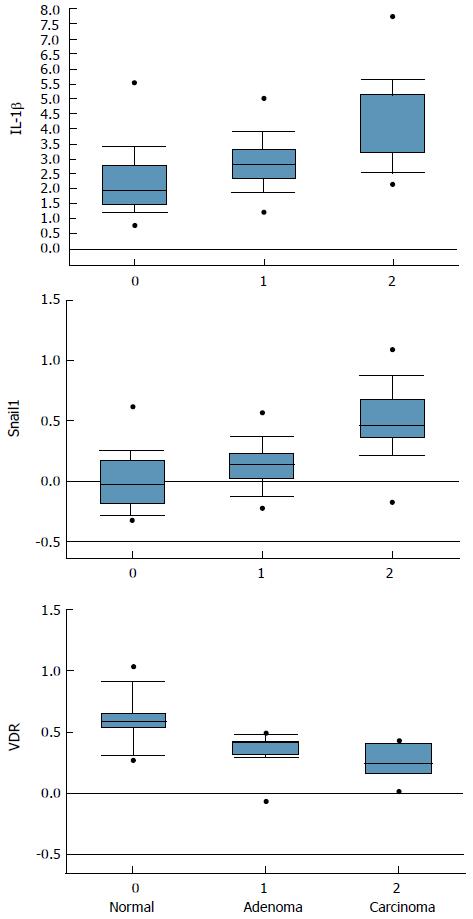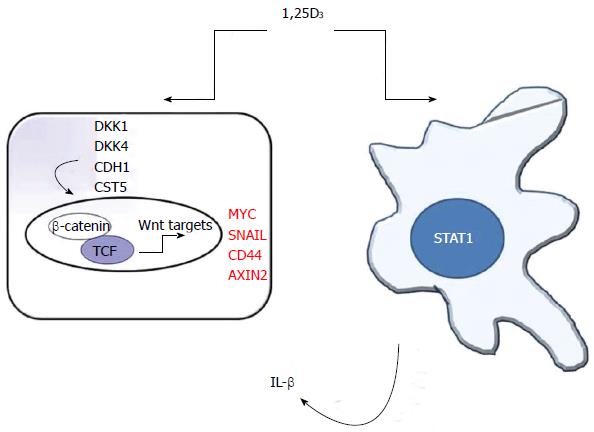Copyright
©2014 Baishideng Publishing Group Inc.
World J Gastrointest Oncol. Nov 15, 2014; 6(11): 430-437
Published online Nov 15, 2014. doi: 10.4251/wjgo.v6.i11.430
Published online Nov 15, 2014. doi: 10.4251/wjgo.v6.i11.430
Figure 1 The expression levels of IL-1β and Snail are increased and the levels of vitamin D receptor decreased in colon cancer patients (Skrypziack, PLOS ONE 2010[71]).
VDR: Vitamin D receptor.
Figure 2 The multiple mechanisms whereby vitamin D inhibits Wnt signaling: 1,25D3 acts on both tumor cells and tumor-associated macrophages (and potentially on other stromal cells).
In tumor cells, 1,25D3 promotes VDR/β-catenin binding and thus inhibits nuclear translocation of β-catenin. It also induces the expression of E-cadherin (CDH1), Dickkopf1 (DKK1), Dickkopf4 (DKK4) and cystatin 5 (CST5), antagonizing β-catenin/TCF transcriptional activity. As a result, the expression of several Wnt target genes, such as Snail, CD44, Myc, Axin2 (in red) is downregulated by 1,25D3. These activities require VDR expression in tumor cells. In addition, vitamin D also acts on cells in the tumor microenvironment. We demonstrated that 1,25D3 inhibits STAT1 activity in tumor-associated macrophages and prevents the release of IL-1β, which in a paracrine manner promotes Wnt signaling in cancer cells. 1,25D3 can thereby regulate Wnt signaling in tumor cells that do not respond directly to 1,25D3. VDR: Vitamin D receptor.
- Citation: Klampfer L. Vitamin D and colon cancer. World J Gastrointest Oncol 2014; 6(11): 430-437
- URL: https://www.wjgnet.com/1948-5204/full/v6/i11/430.htm
- DOI: https://dx.doi.org/10.4251/wjgo.v6.i11.430










